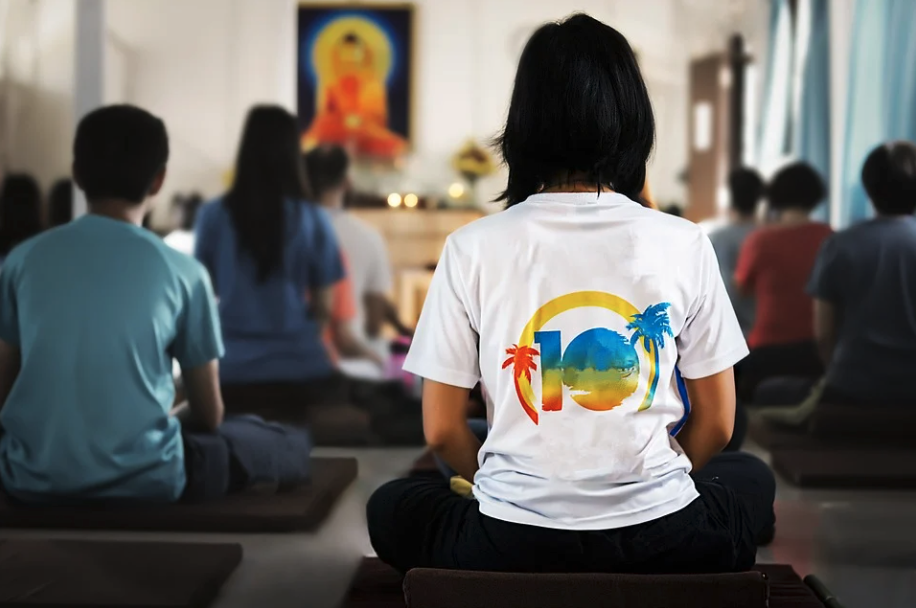
Meditation in some form or another has been hyped for decades now. And it is safe to say that it is fully mainstream today. Apps you can download are valued at millions of dollars. Videos on YouTube are watched again and again.
There is even a movement of mindfulness critics, from leaders of Western religions worried it will convert their members, to traditional Buddhists who are concerned that something precious from their religion is being taken away.
My own interest in this movement began around 2012 when I was working on my PhD in Buddhist Ethics. I read the complaints by traditional Buddhists and wanted to investigate. Since then, I have written a number of papers and given several conference presentations on mindfulness and ethics. I also trained to be a meditation teacher and offered courses. I had found meditation—which refers to a number of practices that include mindfulness—to be immensely helpful in my life and I saw it helping others as well.
Psychology of Intention
Recently, psychology professor Steven C. Hayes wrote an article about why meditation might not be working for you. The answer, he argued, is intention. He wrote that the most powerful divider between people who are successful in meditation and those who are not is intention.
He also noted a recent study from the State University of New York at Albany that studied a group of 100 meditators. Around half of them stated that their intentions around meditation were limited and focused on just dealing with difficult feelings or fears. The other half meditated with the intention to open up to experiences, whatever they might be, and allowing them to arise and pass by. The first group, so focused on narrow goals, found little benefit in the meditation at all. The second group, by contrast, reported reduced anxiety and worry, less depression, and greater awareness.
Ethics and Good Meditation
Meditation has traditionally been done in a religious context. It could be Catholic centering prayer, Sufi practices, or Buddhist mindfulness. There are practices within virtually all religious traditions.
However, with the spread of mindfulness, many people are taking it out of that context. Now mindfulness is marketed as a method of stress reduction. The most common secular practice, in fact, is Mindfulness Based Stress Reduction (MBSR), developed by Jon Kabat-Zinn in the 1970s. Without the support structures of a religion, many people quickly give up on meditation.
This is unfortunate. And it can be remedied.
Even without a religious framework, one can set intentions in life that benefit your meditation practice. The key is to ground yourself in a desire or intention for a more ethical life. It might sound unimportant, but developing an ethical life can be the fastest way to make your meditation practice bring strong results.
Taking a foot off of the brake pedal
Why develop a more ethical life as part of your meditation goals? One of the best ways this has been explained to me was that it was like taking a foot off of the brake pedal. Imagine driving a car down the road with a foot on the gas, but the other one gently pushing the brake pedal. Sure, we might get around, but the process is hardly enjoyable or smooth.
When we live an overall unethical life, it’s like this in meditation. Meditation helps smooth out our lives, unraveling difficult emotions and memories, both recent and distant. But if we add new unpleasant emotions every day, we find ourselves just working on those experiences every time we meditate.
If, for instance, you find yourself fighting with your partner every day, you’ll likely have those conversations arising in meditation. If you can find a way to resolve those fights, your meditation will be free to handle other experiences. Over time, as you resolve more and more conflicts in life (and learn how to not create new ones!) your meditation will grow deeper and more fulfilling.
In Buddhism, a number of practices were suggested in order to set a foundation for good meditation. These include right speech, which aims to reduce conflict, along with generosity, which helps us to be less stingy and materialistic. Any number of practices like these can be developed to help you develop a more ethical path in life and deeper meditation practice.
Building a community

Another powerful way to improve your meditation is by building a community of people who will actively support your practice. You don’t all have to have the same beliefs or practices. But you need to have similar goals of developing a lasting and meaningful meditation practice.
I often told my meditation students that the classes I taught were as much for me as for them. The mere fact that I was leading a group of new meditators meant that I needed to hone my own skills and broaden my knowledge of the practice. And through their experiences I learned more and more each time I taught.
Over time, several became friends and still keep in touch as we flow in and out of our meditation practices. The closer I am to a group of friends who meditate, the easier and more natural it has been to slip back into my own practice.
Two or three beginners, enthusiastically working together to start a practice, can be amazingly successful. It helps a lot to share your experiences, especially around obstacles, with others who can help you get beyond them or can learn from your setbacks.
Not only can your community help you with meditation itself, they can guide you in living a more ethical life. All of this, together, will help ensure that your meditation practice is both productive in the short term and deeply meaningful over time.
 Justin Whitaker, Ph.D., holds a doctorate in Buddhist ethics from the University of London. He has given lectures, and taught Buddhist studies and Philosophy at Oxford University, the University of Hong Kong, the University of Montana, and at Antioch University’s intensive study-abroad program in India. A certified meditation teacher, he is a regular contributor to Patheos.com, and Senior Correspondent for Buddhistdoor Global. He lives in Missoula with his family.
Justin Whitaker, Ph.D., holds a doctorate in Buddhist ethics from the University of London. He has given lectures, and taught Buddhist studies and Philosophy at Oxford University, the University of Hong Kong, the University of Montana, and at Antioch University’s intensive study-abroad program in India. A certified meditation teacher, he is a regular contributor to Patheos.com, and Senior Correspondent for Buddhistdoor Global. He lives in Missoula with his family.
